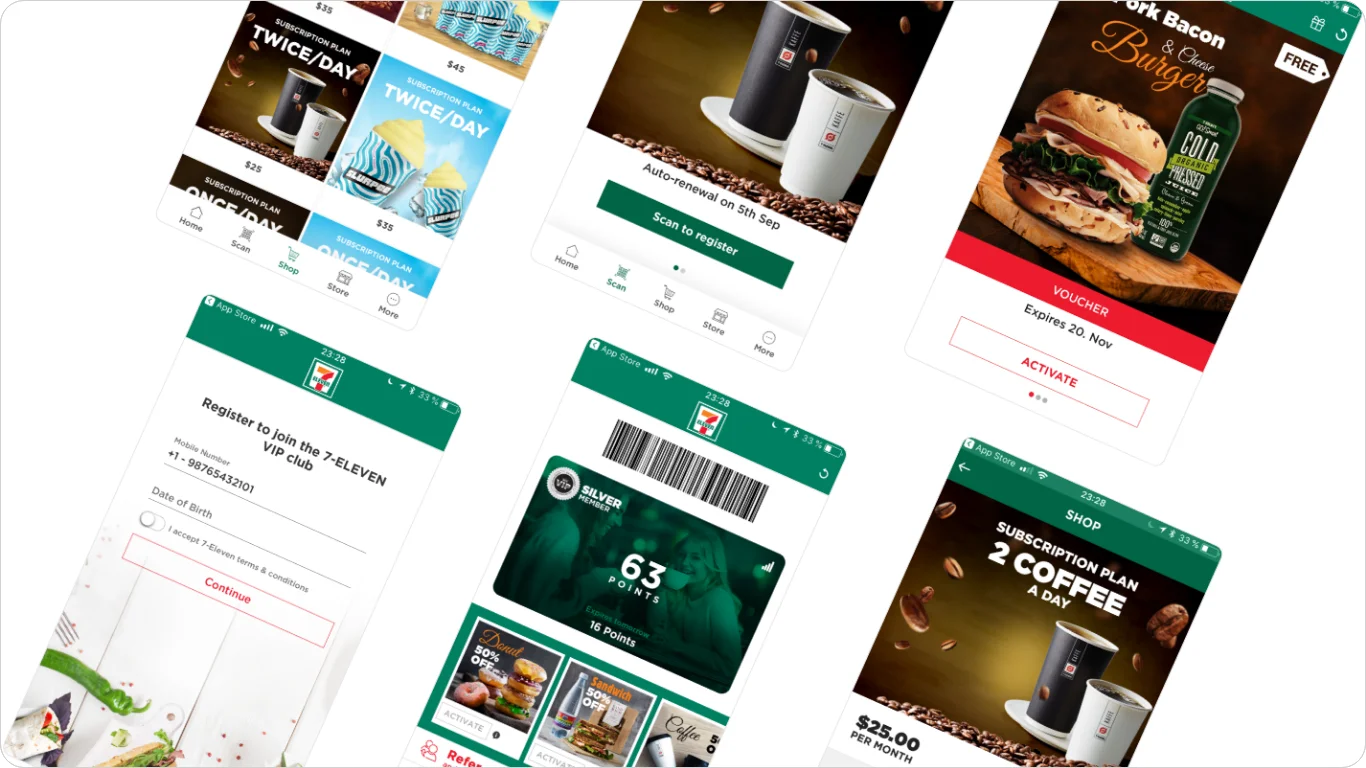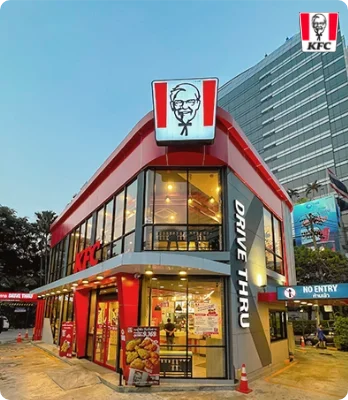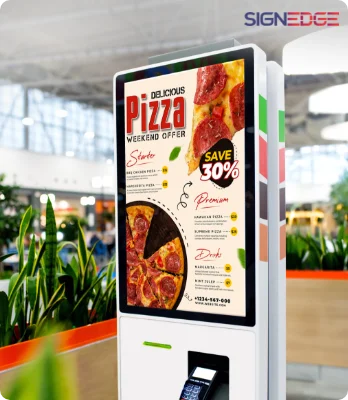Industry:
RetailTechnologies:
KotlinProject
Introduction
In the dynamic landscape of retail convenience, 7-Eleven Norway has emerged as a frontrunner, leveraging digital innovation to redefine customer experience. With a network of nearly 200 stores across urban and roadside locations, the brand sought to harness the power of digital technology to deepen customer engagement and streamline its marketing strategies. This case study delves into the intricate process of digital transformation undertaken by 7-Eleven Norway, focusing on the development and implementation of a sophisticated mobile application designed to enhance customer interaction and loyalty.
As a digital transformation expert, our role in this project was to orchestrate a strategy that not only addressed the immediate objectives but also set a precedent for future technological advancements in the retail sector. The project hinged on the integration of cutting-edge technologies and innovative approaches to customer engagement, revenue generation, and operational efficiency.
Objective
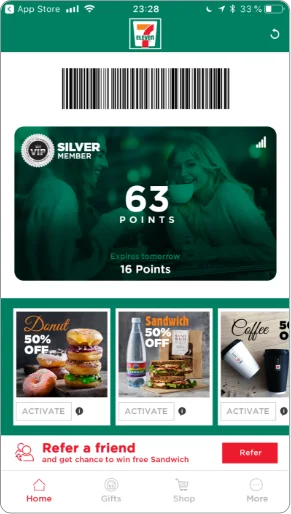
The primary objective of this initiative was multifaceted:
-
01/
Enhanced User Registration
Implementing a 'recruit-a-friend' concept, allowing users to register via the app using their phone number, with a pin delivered via SMS. This approach aimed to simplify the onboarding process, making it more user-friendly and secure.
-
02/
Customer Engagement and Rewarding
Developing an onboarding program within the app to engage customers effectively and incentivize their participation through rewards.
-
03/
Effective Communication via Push Notifications
Utilizing push notifications to inform users about new surveys and content available in the app, thereby encouraging regular interaction and feedback.
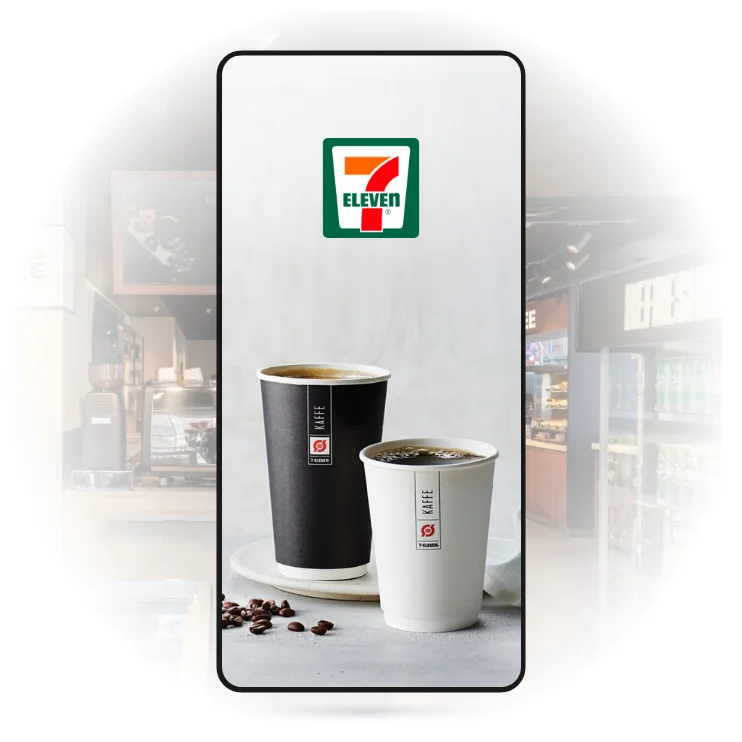
Project Challenges

Technological Integration
The need for a robust technological framework capable of handling real-time data analytics, secure user registration, and efficient push notification systems.

User Experience (UX) Design
Crafting an intuitive and engaging user interface (UI) that resonates with the diverse user base of 7-Eleven, ensuring ease of navigation and interaction.

Data Security and Privacy
Implementing stringent data security measures to protect user information, especially in the context of SMS-based registration and personal data from surveys.

Scalable Solutions
Ensuring the scalability of the app to accommodate an increasing number of users and evolving business needs without compromising performance.

Revenue Generation Strategy
Integrating mechanisms within the app to drive revenue, such as targeted advertising based on user preferences and behaviors.

Content Management
Developing a dynamic content management system to regularly update surveys, deals, and notifications, keeping the app content fresh and relevant.

Out-of-the-Box Problem Solving
Addressing unforeseen challenges and user feedback with innovative solutions, maintaining the app's relevance and effectiveness.
Solutions
Enhancing User Trust with Secure and Transparent Processes
Secure Architecture
To foster user trust, we implemented a secure, multi-layered architecture within the 7-Eleven app. This architecture was designed to protect user data through end-to-end encryption and robust firewall mechanisms. The encryption protocols ensured that personal data, such as phone numbers used during registration, remained confidential and secure against unauthorized access.
Transparent User Journey
The app was designed to guide users through a transparent, step-by-step process. Each stage of the user journey, from registration to survey participation, was clearly outlined, ensuring users were well-informed about the data being collected and its usage.
Recruit-a-Friend System
The app incorporated a 'recruit-a-friend' feature, enabling existing users to invite friends to join the platform. This system was backed by a referral tracking mechanism, ensuring that referrers received appropriate rewards, thereby incentivizing user growth organically.
Pin-via-SMS for Secure Registration
A pin-via-SMS feature was integrated for secure and efficient user registration. This system not only streamlined the onboarding process but also added an extra layer of security, verifying the user's identity through their mobile device.
Targeted Push Notifications
We developed a sophisticated push notification system to alert users about new surveys and content. This system utilized user behavior and preference data to tailor notifications, making them more relevant and engaging.
Engagement Tracking
The effectiveness of push notifications was continuously monitored through engagement tracking. This data was used to refine the notification strategy, ensuring maximum user engagement and response rates.
Real-Time Data Analytics
The app's survey system was enhanTargeted Push Notifications We developed a sophisticated push notification system to alert users about new surveys and content. This system utilized user behavior and preference data to tailor notifications, making them more relevant and engaging.
Engagement Tracking
The effectiveness of push notifications was continuously monitored through engagement tracking. This data was used to refine the notification strategy, ensuring maximum user engagement and response rates. ced with real-time data analytics. This allowed for the continuous evolution of survey content based on user responses and preferences, ensuring that the surveys remained relevant and engaging.
Personalized User Experience
By analyzing user data, the app provided personalized experiences, such as exclusive deals for identified student users. This personalization was key in increasing user engagement and satisfaction.
Microservices Architecture
The app was built on a microservices architecture, allowing for modular development and scalability. This approach enabled us to rapidly adapt to changing business needs and user demands without disrupting the overall system functionality.
Containerization for Seamless Deployment
Each microservice was containerized, facilitating efficient deployment and scaling. This ensured that the app could handle increasing loads and functionalities with minimal downtime.
Dynamic Content Management
A dynamic content management system was implemented to regularly update the app with fresh surveys and deals. This system was designed to be agile and responsive to market trends and user feedback.
Revenue Generation Mechanisms
The app included subtle yet effective revenue generation mechanisms. These included targeted advertising based on user behavior and preferences, as well as partnerships with third parties for exclusive deals and offers.
Regular Security Audits
To maintain the highest standards of data security, regular security audits were conducted. These audits ensured that the app remained compliant with the latest data protection regulations and industry best practices.
Data Anonymization Techniques
Data anonymization techniques were employed to further protect user privacy. This approach ensured that while valuable user insights could be gleaned for business and marketing strategies, individual user identities remained protected.
Results
& Impact
The digital transformation initiative for 7-Eleven Norway has culminated in significant achievements, both in enhancing user engagement and streamlining operational processes. The deployment of the mobile application has led to measurable impacts across various facets of the business.

User Engagement
There has been a substantial increase in user registrations, with a 40% month-over-month growth. This surge is indicative of the successful adoption of the app and the effectiveness of the 'recruit-a-friend' feature.

Survey Participation
The implementation of targeted push notifications has resulted in a 50% increase in survey participation, demonstrating the efficacy of personalized communication strategies.

Operational Efficiency
The automation of key processes within the app, including user registration, survey distribution, and data analysis, has led to a 30% reduction in operational costs. This efficiency gain is a testament to the streamlined workflows enabled by the app.

Data Security
Since the launch of the app, there have been no reported instances of data breaches or security lapses, underscoring the robustness of the security measures implemented.

Customer Retention
The app has seen a 25% increase in customer retention rates, attributed to the personalized deals and user-centric features.

Revenue Growth
The integration of targeted advertising and exclusive deals has contributed to a 20% increase in revenue, showcasing the app’s role in driving business growth.

User Satisfaction
The app has garnered overwhelmingly positive feedback, reflected in a Net Promoter Score (NPS) of 80. Users have particularly praised the ease of use, the seamless registration process, and the personalized offers and surveys, which have significantly enhanced their shopping experience at 7-Eleven stores.

Business Impact
The app has opened new avenues for revenue generation, such as through targeted advertising and partnerships for exclusive deals. These initiatives have not only boosted the bottom line but have also reinforced 7-Eleven’s position as a leader in customer-centric retail innovation.

Environmental and Social Impact
By encouraging user engagement through digital means, the app has contributed to a reduction in the use of physical loyalty cards and paper-based surveys, aligning with broader environmental sustainability goals. Additionally, the app’s student identification feature has fostered a sense of community among young consumers, promoting inclusivity and tailored experiences.

Technological Benchmark
The 7-Eleven app has set a new standard in the retail sector for integrating advanced technologies such as real-time analytics, secure user authentication, and personalized content delivery. It serves as a benchmark for how digital platforms can be leveraged to enhance customer experience, drive business growth, and maintain operational efficiency.
Project
Summary
The transformation of 7-Eleven Norway’s customer engagement approach through digital means has not only met its initial objectives but has also exceeded expectations in several areas. The app stands as a testament to the power of digital innovation in reshaping the retail landscape, offering valuable insights into user behavior, and setting new standards in customer satisfaction and business efficiency. This case study exemplifies how strategic digital transformation can create significant value and impact in the retail sector.
More
Case Studies
Next Level Tech,
Engineered at the Speed of Now!
Are you in?
Let Neuronimbus chart your course to a higher growth trajectory. Drop us a line, we'll get the conversation started.

